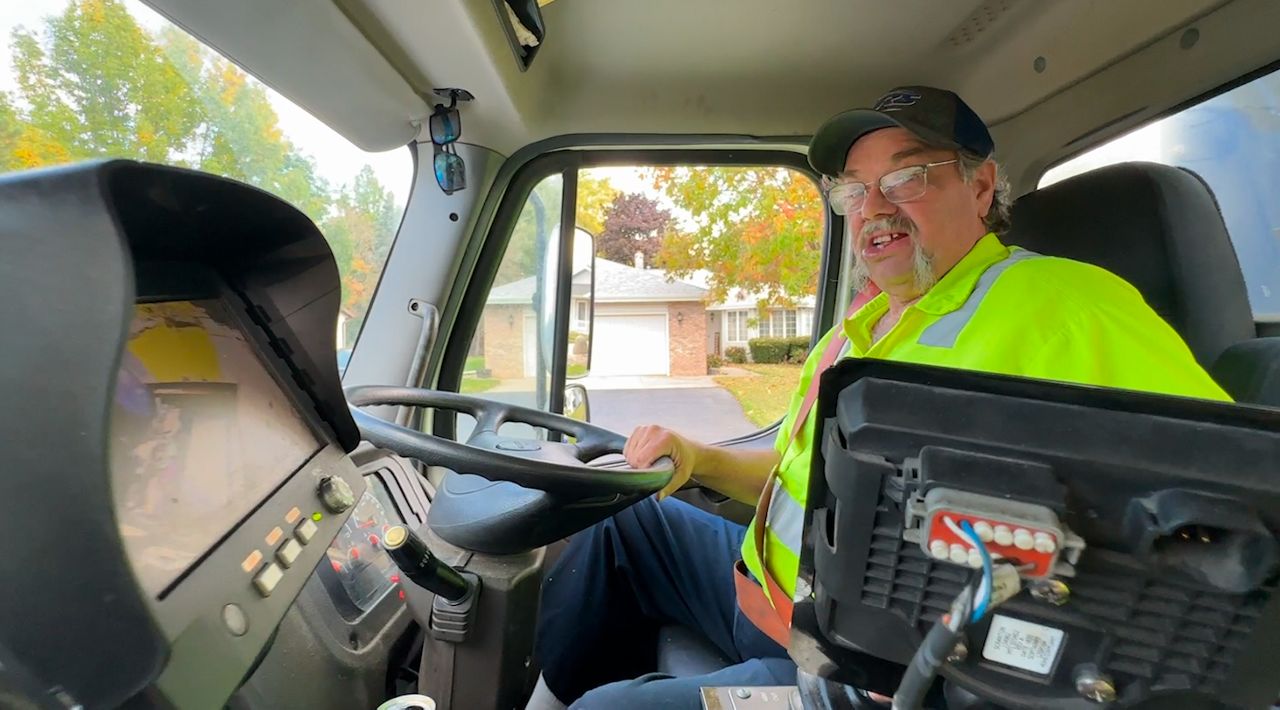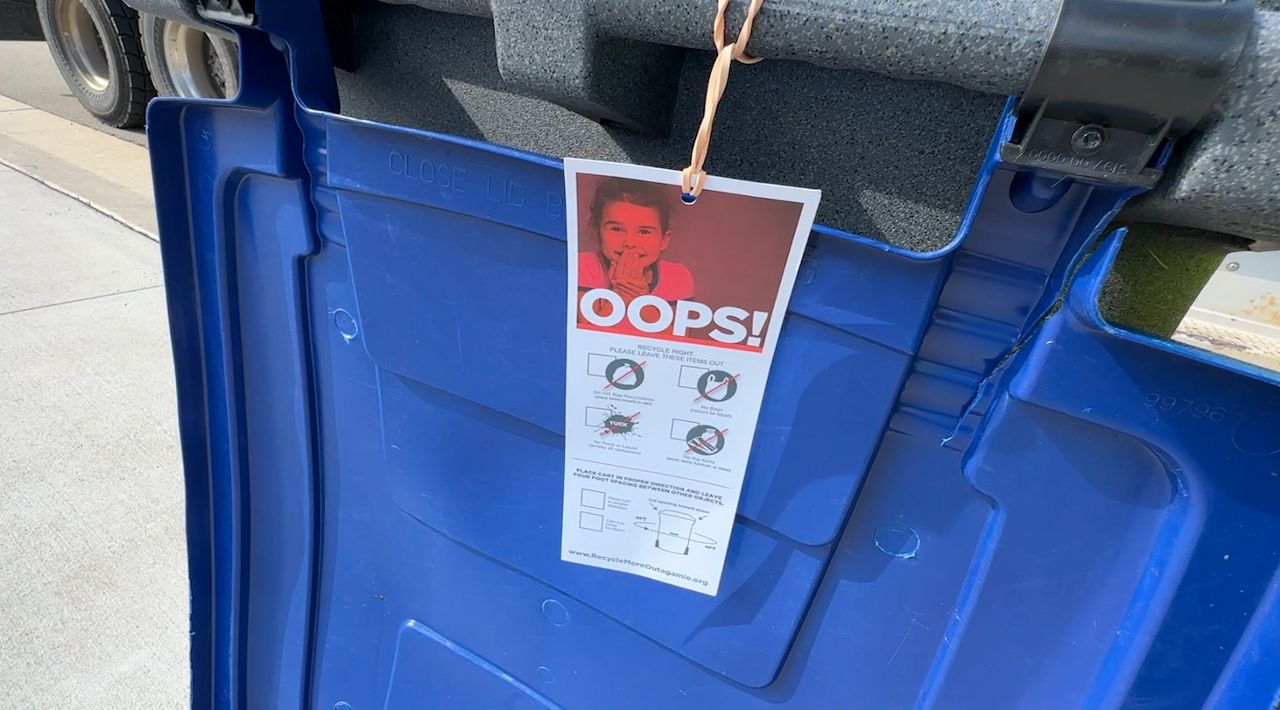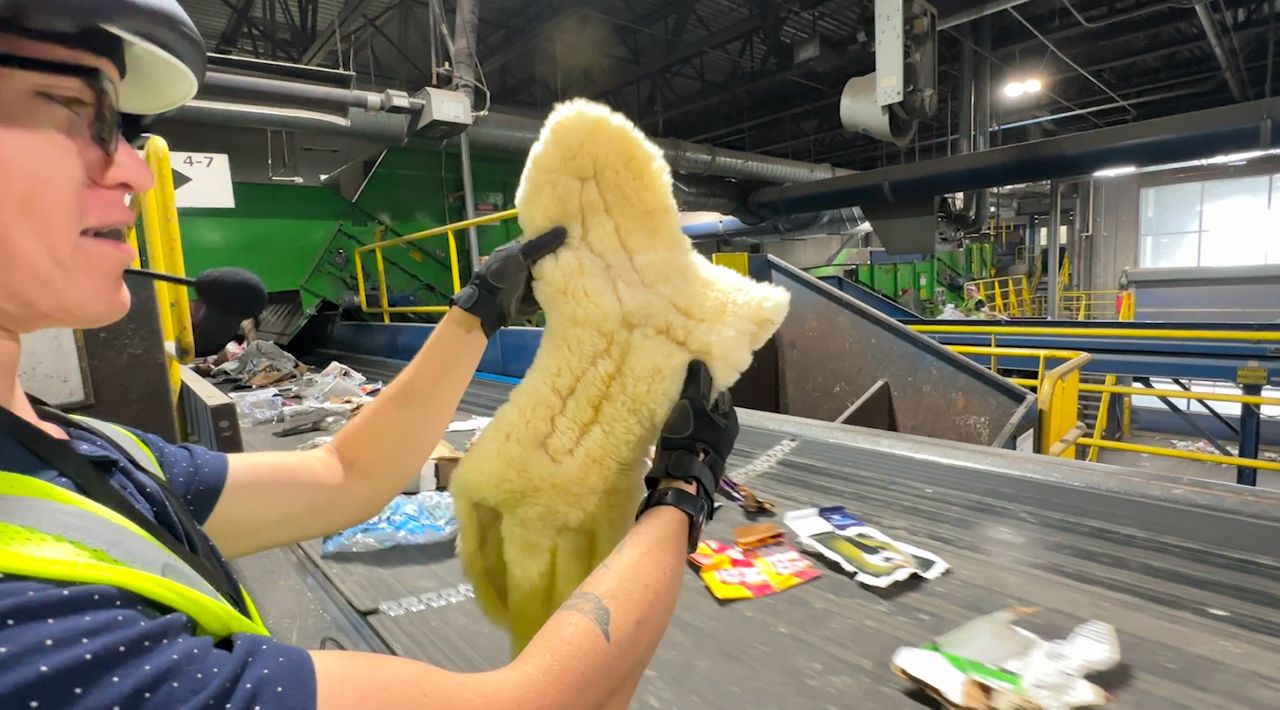APPLETON, Wis. — About a thousand times a day, Sean Visocky empties a bin into the back of his recycling truck.
He stays in the cab and uses a joystick to control a mechanical arm that lifts the bins from the street. Visocky watches through a camera system as the contents spill out.
A driver for waste management company, LRS, he keeps an eye on what’s on the curb.
“We’re trying to help out the county so they get less non-compliant material because that then helps them process it,” Visocky said while emptying bins in Greenville.
Part of what he’s looking for are things that can cause problems for recycling equipment after he drops off his load with Outagamie County.
“If you see plastic bags, even though it’s got recycling in it, the plastic bags can’t be recycled. It jams up the separating system,” he said.

Outagamie County Recycling and Solid Waste is reminding residents this fall of what can go into the recycling stream and what can’t.
When items that should go into another disposal method are found, the drivers, such as Visocky, will place an “Oops!” tag on the bin. Visocky said he’s seen everything from a complete microwave to leftover pizza and plastic car parts in recycling bins.
The tags remind residents plastic bags shouldn’t be used to contain recyclables. Plastic bags can’t be recycled through the system, nor can food or paper contaminated with food. Bulky items like propane tanks, furniture and scrap metal are also non-compliant.

Jordan Hiller, the county’s recycling and solid waste program coordinator, said earlier this year they were seeing an uptick in contaminates in the recycling.
“We really wanted to start a program that gets residents back in here and understanding that recycling happens outside of holidays and Earth Day and that it’s a full-year program,” he said. “And to remind people of the proper items that should be going in their cart and the top contaminators that should be kept out.”
Those top contaminators include things like plastic bags, films, textiles, wraps, food, batteries and shredded paper.
“The ‘Oops!’ program is not meant to chastise or make anyone feel bad. It really is just about that education and outreach,” Hiller said. “Things change in the recycling industry over time, so what you might have been taught as a kid in school may have changed over the last 20 years.”

Visocky said most people recycle correctly. He’ll attach anywhere from two to 10 “Oops!” tags depending on the day and area.
He said he’d still like to see more people taking care with what they put in recycling bins.
“When it takes them time to shut the machine down that’s supposed to separate everything then it backs us up because now we can’t get empties to be able to get back out and do our job and service the cans,” Visocky said. “They come home at 5 p.m. at night and their can is usually empty and now their can is full.”
More information on recycling in Outagamie County can be found here.



